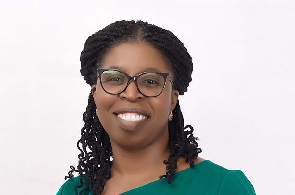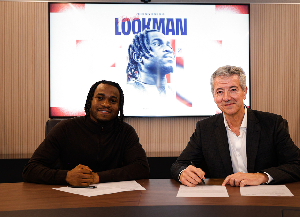Encouraging your kids to save from a young age is important, as it sets them up for the future.
Studies have indicated that in Ghana and most developing parts of the world, families feel that it's difficult to save as a result of low-income levels.
With the banked population pegged at just 33%, we need to start helping our future generations understand the importance of saving and guide them in building healthy and solid relationships with money.
Conversations around saving and spending are crucial life skills, as they help shape children's attitudes about money from a young age.
"Children should start understanding the concept of money at a very young age. It’s at this point that we need to start inculcating the value and importance of effective and creative money management in them," Akweley Laryea, Head of Retail Banking at First National Bank says.
"We could influence the way our children save or spend their money through ongoing conversations. These conversations should revolve around the concept of ‘choice’, by giving our children the option of spending versus saving their allowances or money and the potential impact of not saving for the future.
"One of the best ways of ensuring that your children are capable of saving is to let them take control of their savings journey. Using age-appropriate ways to teach saving and making it interactive will make it fun for them and help them develop a healthy relationship with money and savings. Guide them through the money management journey, starting with basic budgeting, helping them understand that saving is a need, not a want, and helping them track their progress monthly. This is one of the best ways to get them started on their savings journey and make them the next generation of money-savvy young adults."
Madam Laryea highlights a few ways that parents can sway the savings conversations with their children:
Unpack the importance of needs vs wants
We’ve all been in those situations where we want to spend our hard-earned money on something nice. Teaching kids the value of saving from the onset involves distinguishing between needs and wants. Help them understand that needs include basic items like food, clothing, and stationery, and wants are those additional nice-to-haves like toys, bicycles, movie tickets, etc.
Conversations around needs and wants ought to be practical. Parents or elders can build a game around the concept by quizzing their kids at home or in an external environment and asking the question, “What is a need and want?”
Challenge them
There’s no better way to get kids to do something than by challenging them. Have a conversation to understand what their ultimate savings goal is, whether it's to buy a new smart device or a toy car. Note the cost of the item and then highlight what they can get if and should they save for an additional 6-12-month period instead of going off to buy their desired object.
Help them map out a creative savings plan
Just like a budget, help them map out their ideal savings plan, through a savings journal. Be creative, use a scrapbook, highlighters and pictures to map out their savings journey. In their plan highlight the:
1. Desired object
2. Why are they saving for this object?
3. Is it a need or want?
4. Goals or timelines to purchase the object
5. Is it a short or long-term goal?
Build a savings tracker that will help them monitor their savings. This tracker can be adapted to suit your child’s savings goals:

Open a bank account or get a savings or investment vehicle
A bank account or investment vehicle is a great way to get your children started on their financial journey. This will also help them understand the concept of finance, savings and investments; and will help in visualising their financial goal.
You could look at opening a First National Bank, Future Forward account for your children, for day-to-day savings until they are 18 years old and can take over the account, or even a Fixed Deposit account which can help fund their education in the long-term.
“Savings is a common topic among all age groups. The reality is that no matter how old you are, you still need a savings plan that will get you through those tough times,” Madam Laryea says. “It’s easy to put savings off till later, but in reality, an adequate savings plan will help you in the long term.”
Press Releases of Tuesday, 20 June 2023
Source: First National Bank













